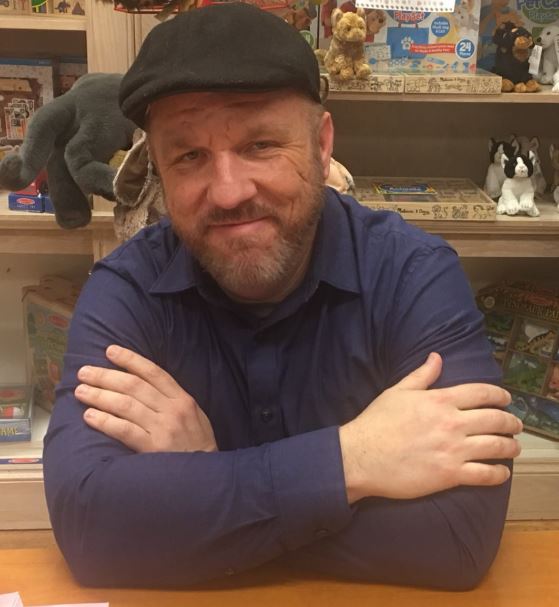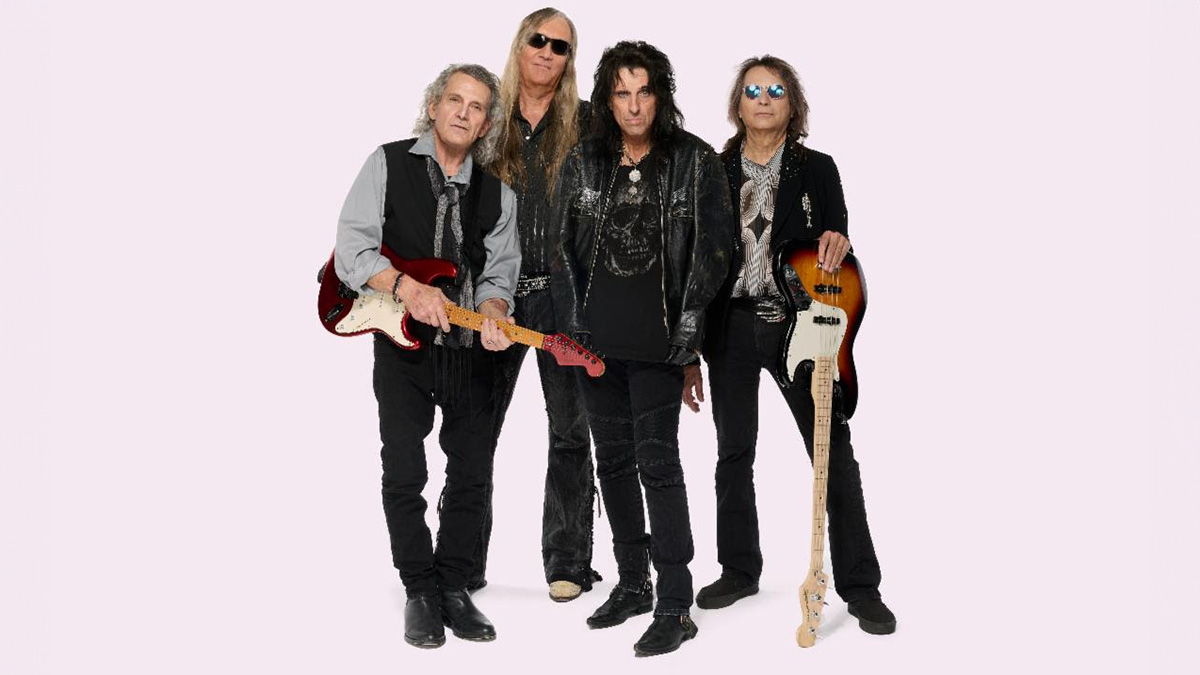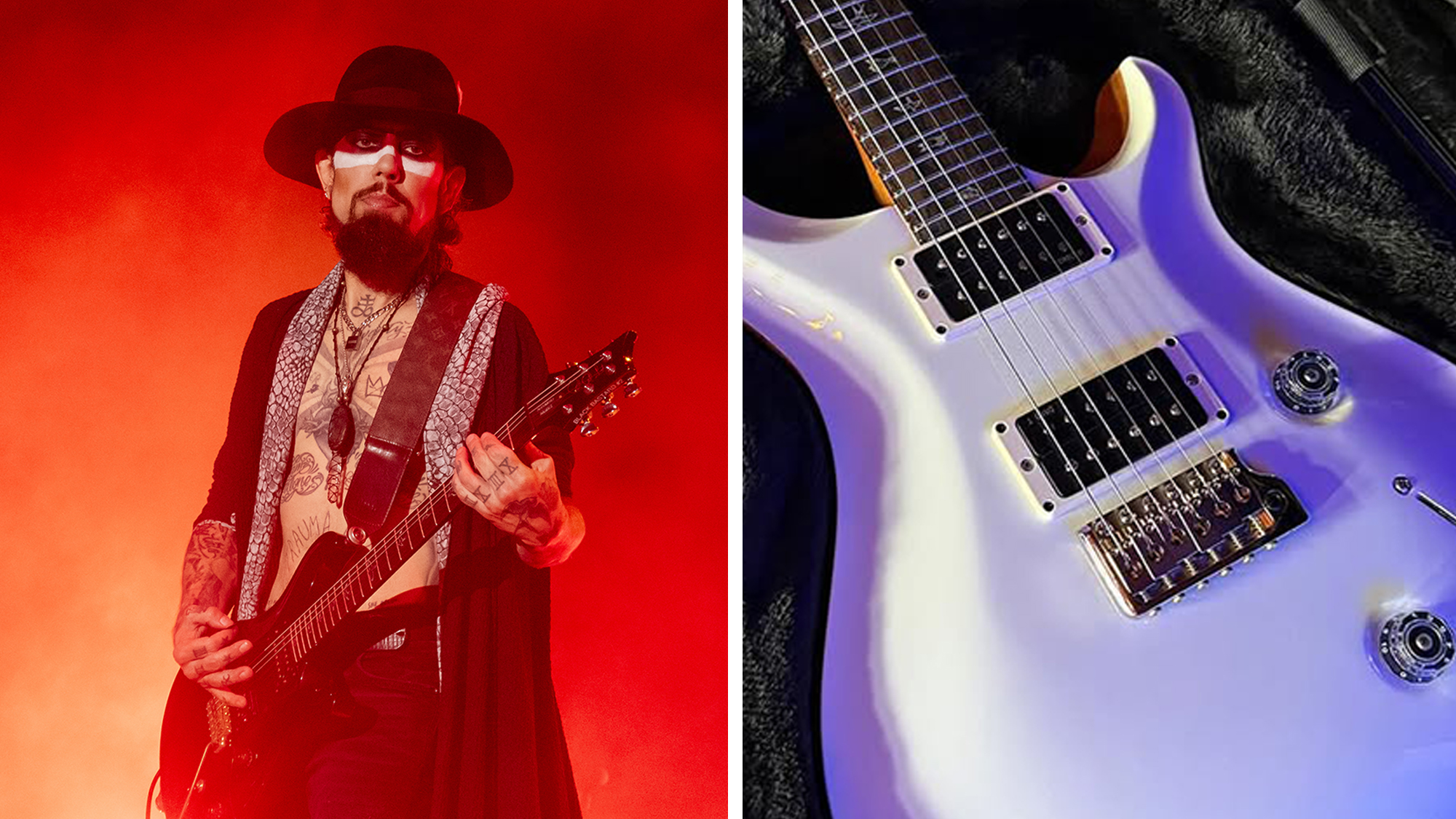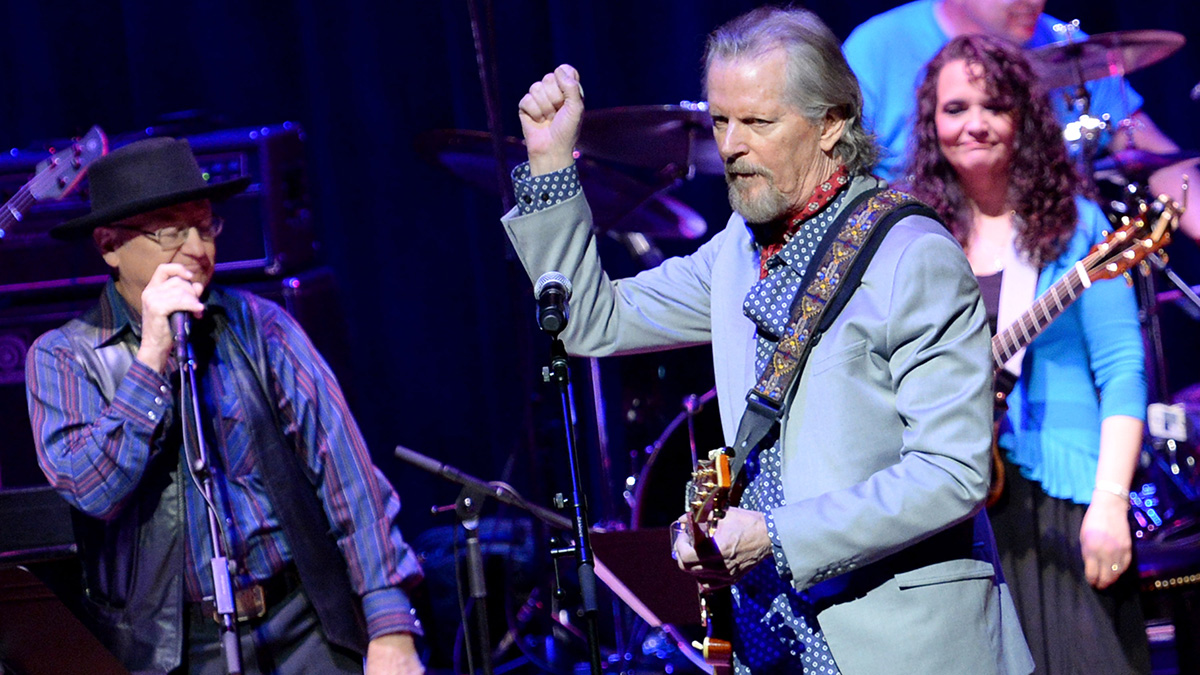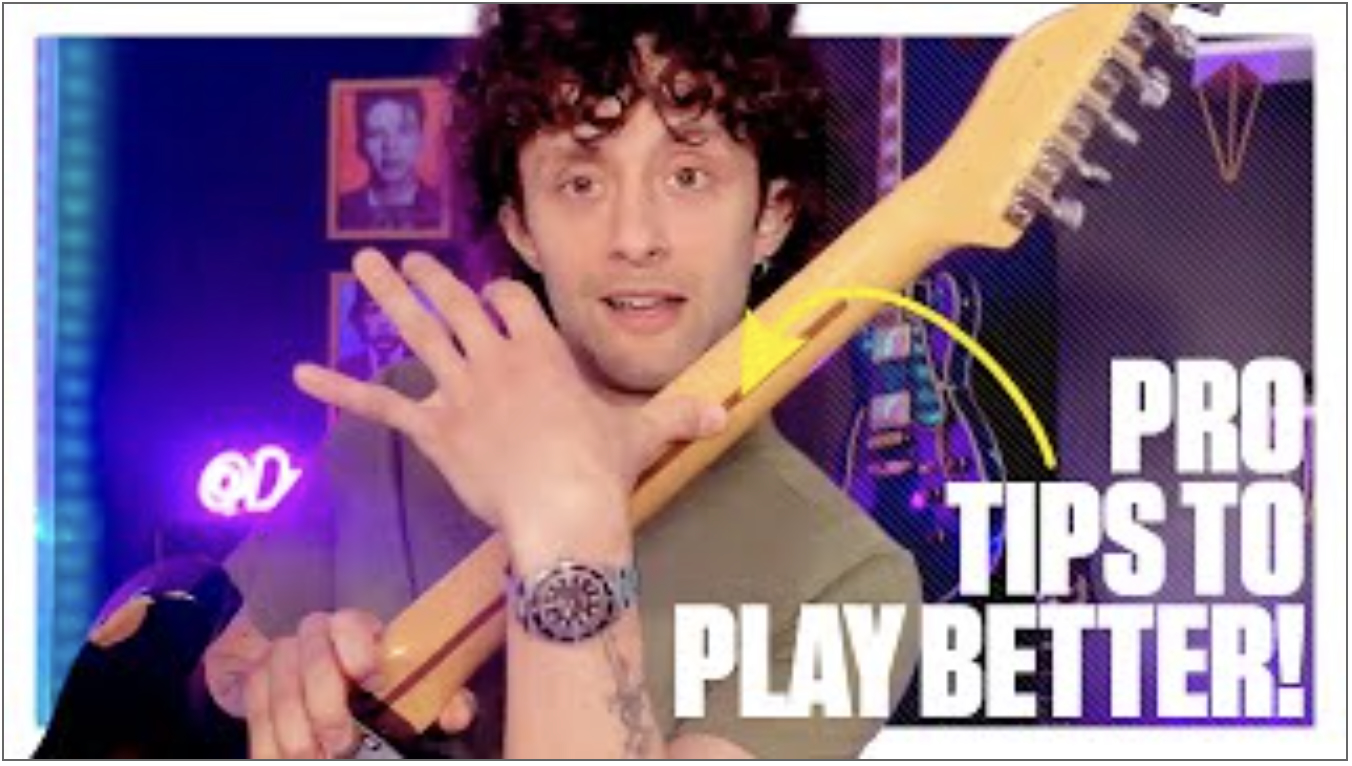Phil Collen Talks Def Leppard's Explosive New Concert Film, 'Live from Detroit'
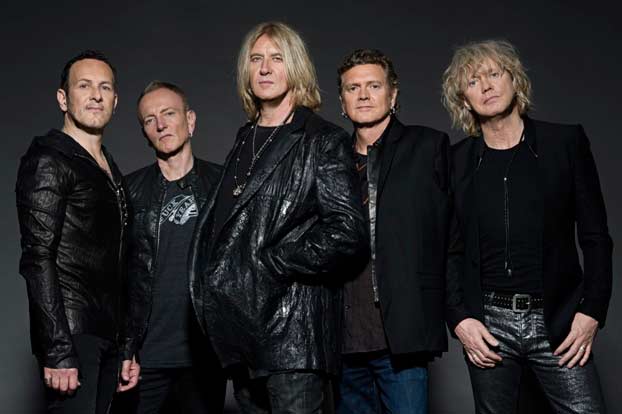
Def Leppard's new concert film, And There Will Be a Next Time: Live from Detroit, captures the power and raw energy of one of rock’s most dynamic and celebrated bands.
The disc, which was filmed at the DTE Energy Music Theatre in Clarkston, Michigan, includes a gaggle of hits from across the band's 40-year career, including highlights from their monster albums—Pyromania and Hysteria—straight on through to their self-titled 2015 release.
I recently spoke with guitarist Phil Collen about Live from Detroit, the 30th anniversary of Hysteria, gear and more. You can check out the interview below.
And There Will Be a Next Time: Live from Detroit will be out February 10—and the band will be hitting the road again this spring. Check out all the dates right here.
What made the band decide to do a live project?
During this last tour, everyone—including the band—was saying this was the best they had ever heard Def Leppard. We knew we had to document it. We had also done Live: In the Round, In Your Face back in 1987 and knew we needed to update it. It was a no-brainer. But there was no real concept voyage behind it.
The first real sellout on the last tour was in Detroit, which has always been a brilliant market for the band. So we said, let’s record the most ravenous audience on that tour and the first sellout and update the whole thing, since it was all going so well. That was it.
Are there any extra nerves going into recording a live show, knowing there are no second chances?
Not so much nerves, but I do remember going over to the side and seeing a drone camera floating around by my head, filming me and taking photos. You get distracted and go, “This is not normal!” [laughs]. All of these kinds of things happen, but it’s all part of a live performance. There’s also going to be mistakes in live things, but it just shows that you’re human and it makes the record even more live.
Get The Pick Newsletter
All the latest guitar news, interviews, lessons, reviews, deals and more, direct to your inbox!
This year marks the 30th anniversary of Hysteria. What was your biggest challenge when making that album?
The biggest challenge was that we had been working with Mutt Lange and then he had to go off and finish a prior commitment, which was the Cars' album [Heartbeat City]. So we fended for ourselves for a while and it just wasn’t happening. Then when he came back into the fold, he had a vision of what it was going to sound like, and that’s when it really started clicking. It was a joy to actually hear it come together because it had been frustrating working on something for two years.
When Mutt came back in, we saw what he was trying to accomplish. It was something unique that I had never heard before. Now you hear it for what it is, but at the time it was the absolute perfect hybrid of a rock album into the pop market.
Any interesting stories about working with Mutt on that album?
People tend to think of Mutt as a perfectionist, and that’s really not the case at all. He was just looking for inspiration. At one point I remember questioning the solo for “Run Riot,” and he said, “That’s totally fine. As long as it has the right kind of vibe.” For Mutt, it didn’t have to be perfect. It just had to have the right tone, rhythm or performance.
What can you tell be about Def Leppard’s upcoming tour with Poison and Tesla?
Tesla was the first band to actually play with us in the round when Hysteria was out. We’ve also known the Poison guys forever. We all get along so well that it’s going to be like a family circus.
Are there any other projects you’re working on?
I’m producing the new Tesla album, and I'm very excited about it. We’ve done a lot of it on tour and are just finishing it up. It’s fantastic and so diverse. My side project, Delta Deep, has a live album we recorded that will be coming out this year, and we’re also starting work on the second studio album. That’s pretty exciting as well.
What’s your current live setup like these days?
I use my Jackson PC 1 Signature Series that I’ve been using it for 20 years. It’s been updated with DiMarzio pickups, which I’ve been using for 40 years. I use a Marshall JMP through a Fractal Axe-FX II going through two EVH cabs. When I’m doing anything else, I use a Blackstar ID:60 amp, which is phenomenal.
Of all of the highlights of your career, are there any that stand out as most memorable?
I think the Hysteria album was where we really achieved something that wasn’t there before. Mutt said, “Let’s make a rock version of [Michael Jackson’s] Thriller.” We really succeeded because we had seven hit singles, and the whole thing was different for that time period. It was very rewarding as an artist because we wanted to get something, and Mutt bit into this thing and it worked.
The sound was very different and unlike anyone else. It was the definitive Def Leppard sound—album, songs, everything. That was the benchmark.
James Wood is a writer, musician and self-proclaimed metalhead who maintains his own website, GoJimmyGo.net. His articles and interviews are written on a variety of topics with passion and humor. You can follow him on Twitter @JimEWood.
James is a guitarist and freelance writer who's interviewed some of the biggest names in music. He is the author of four books and his writing credits include work for Guitar World, AXS and Yahoo! as well as for his hometown newspaper where he writes on a variety of topics with both passion and humor. As a guitarist, he's performed everywhere from local bars and nightclubs to some of the biggest stages in front of thousands of music fans.
“I knew the spirit of the Alice Cooper group was back – what we were making was very much an album that could’ve been in the '70s”: Original Alice Cooper lineup reunites after more than 50 years – and announces brand-new album
“Such a rare piece”: Dave Navarro has chosen the guitar he’s using to record his first post-Jane’s Addiction material – and it’s a historic build
